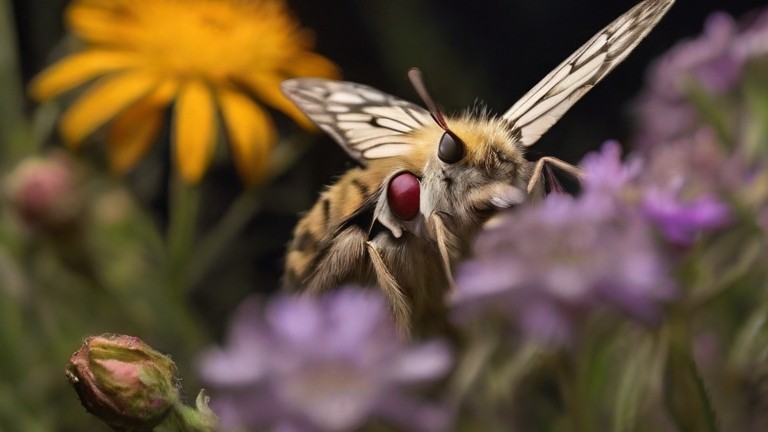Researchers from the University of Washington discovered a significant reason behind the decline in nighttime pollinator activity, attributing much of it to human actions. The presence of nitrate radicals (NO3) in the air was found to deteriorate the scent chemicals emitted by common wildflowers, diminishing the cues relied upon by nighttime pollinators to locate the flowers. These pollutants originate from various sources such as vehicle emissions and industrial activities.
The research team, led by Jeff Riffell and Joel Thornton, examined the pale evening primrose due to its aromatic properties that attract a range of pollinators, including nocturnal moths. By collecting scent samples from these flowers and conducting laboratory analyses, the team identified the specific chemicals responsible for their scent. Using advanced techniques, they observed how these scent chemicals reacted to NO3, discovering that the pollutant significantly reduced certain scent compounds, particularly those preferred by moths.
Moths, with their highly sensitive scent-detection abilities, were observed to be significantly impacted by NO3 levels, affecting their ability to locate and navigate towards flower scents. Field experiments further confirmed these findings, showing a substantial decrease in moth visitation to flowers treated with NO3. The research highlighted the detrimental impact of nighttime pollution on flower scents, with NO3 having a more pronounced effect during nighttime due to sunlight degradation.
Using computer models, the team identified regions globally where plant-pollinator communication could be significantly disrupted by pollution. The study underscores the urgent need to address human-induced pollution, which threatens the intricate balance of plant-pollinator interactions and agricultural ecosystems.
Lead author Jeremy Chan conducted this research during his doctoral studies at the University of Washington, with contributions from various co-authors across different disciplines and institutions.

